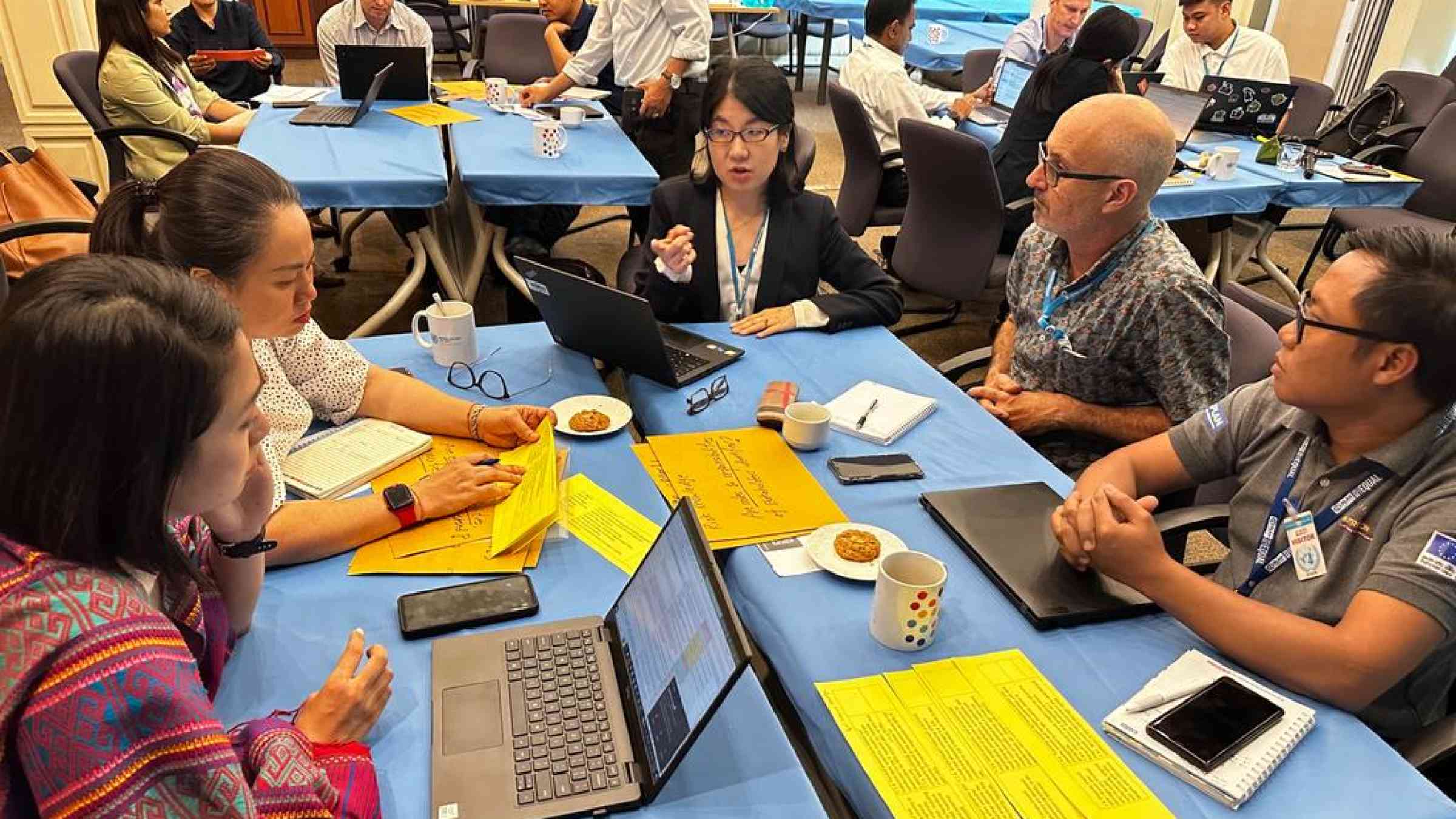Fail Forward Cafe: Turning Setbacks into Success Stories in Disaster Risk Reduction
UN Women Regional Office for Asia and the Pacific, in collaboration with the Humanitarian Advisory Group proposes a unique and innovative session for the APMCDRR 2024 Learning Labs: the "Fail Forward Cafe. This session aims to provide a safe, constructive, and fun environment for participants to share their experiences of failure, reflect on lessons learned, and explore strategies for turning setbacks into opportunities for growth and improvement in design and implementation of climate and DRR related policies and programmes.
Objectives
- Increase Knowledge and Skills: Enhance participants' understanding and capabilities by analyzing real-world failures in disaster risk reduction (DRR) and exploring how these can inform future practices.
- Promote Peer Learning: Culture of openness and mutual learning by connecting practitioners across the region to discuss and learn from their challenges and mistakes.
- Encourage Innovation: Highlight innovative approaches to dealing with and learning from failures, contributing to the implementation of the Sendai Framework for Disaster Risk Reduction 2015-2030.
Approach
The Fail Forward Cafe will be an informal, interactive, and enjoyable learning session lasting up to 90 minutes, designed for 20-30 participants. The session will include:
- Welcome and Icebreaker: Kick off with a light-hearted icebreaker to create a relaxed atmosphere and encourage openness.
- Introduction and Setting the Scene: Brief overview of the Failure Cafe concept and its relevance to DRR, sprinkled with humorous anecdotes to set the tone.
- Storytelling: Participants will be invited to share their personal or organizational experiences of failure in DRR initiatives, with optional props or visual aids for added fun.
- Facilitated Discussions: Small group discussions facilitated by experienced moderators using creative techniques like "failure bingo" or "fail tales" to delve deeper into the failures, identify key learnings, and brainstorm potential solutions or improvements.
- Collective Reflection: A plenary session where groups will share their insights and discuss common themes and lessons, with interactive polls or live drawing to visualize key points.
- Action Planning: Participants will develop action plans for applying the lessons learned to their own contexts, with a fun twist like a "failure-to-success roadmap" activity.
Innovative Teaching Methodology:
- Interactive Discussions: Encourages active participation and candid sharing of experiences.
- Peer-to-Peer Learning: Leverages the collective wisdom and experiences of diverse participants.
- Creative Facilitation Techniques: Use of storytelling, group discussions, and reflective exercises to deep engagement and learning.
- Humor and Fun: Incorporation of light-hearted elements to make the session enjoyable and memorable.
Relevance to Sendai Framework and APMCDRR Themes:
- Learning from Failures: Directly supports the Sendai Framework's emphasis on understanding disaster risk, strengthening disaster risk governance, and enhancing disaster preparedness.
- Gender lnclusivity: Ensures diverse perspectives, including gender considerations, are integral to the discussion of failures and lessons learned.
Speakers
Maria Holtsberg, UN Women Humanitarian and ORR Advisor/Deputy Regional Director for Asia and the Pacific; Beth Eggleston, Humanitarian/ORR Expert at HAG; and Aisha Gui, Program Analyst at UN Women, will lead this interactive learning lab. The session aims to engage diverse participants, including women-led organizations, government entities, UN agencies, and INGOs.

Agenda
Location
Philippine International Convention Center
Online access
Details
Organized by
UN Women Regional Office for Asia and the Pacific (UN Women ROAP) Humanitarian Advisory Group (HAG)Contact
Maria Holtsberg, UN Women Humanitarian and ORR Advisor/Deputy Regional Director for Asia and the Pacific, Email: [email protected]
